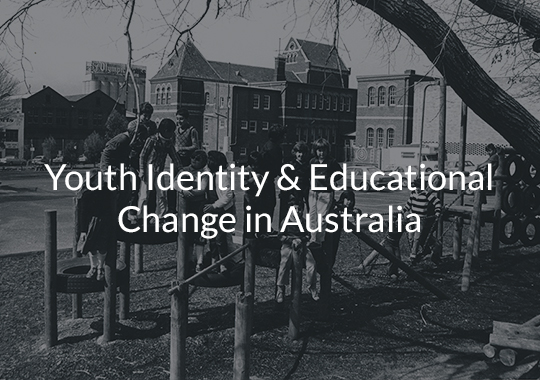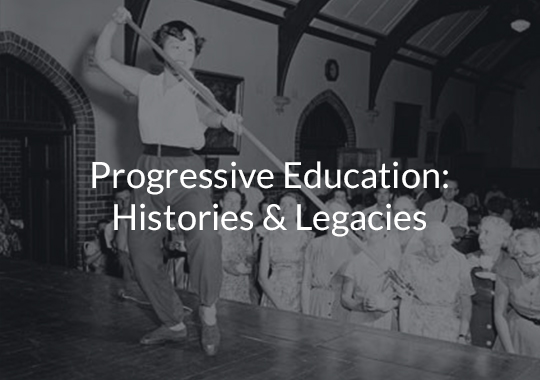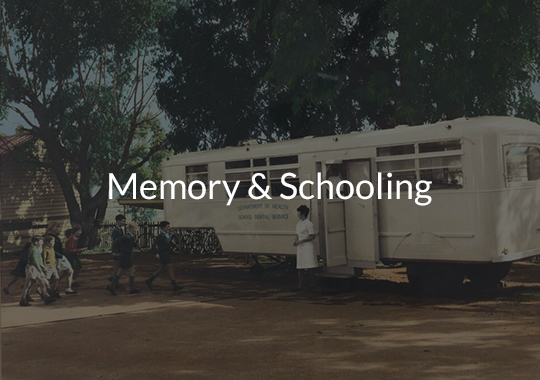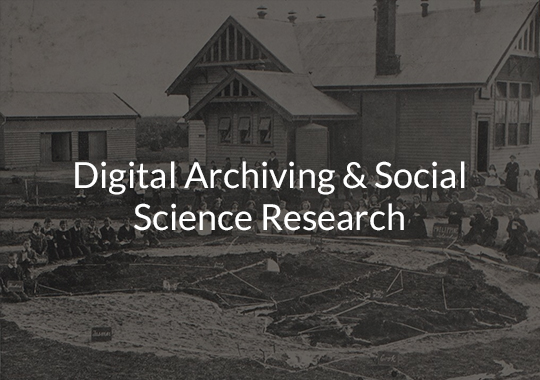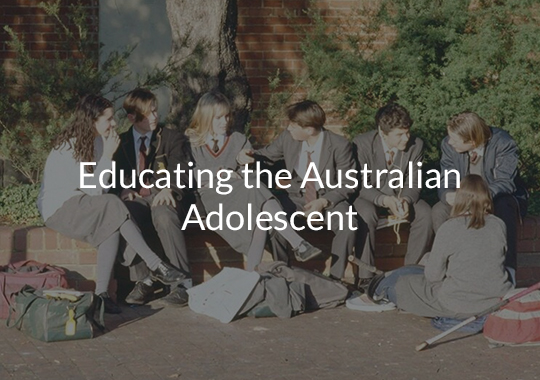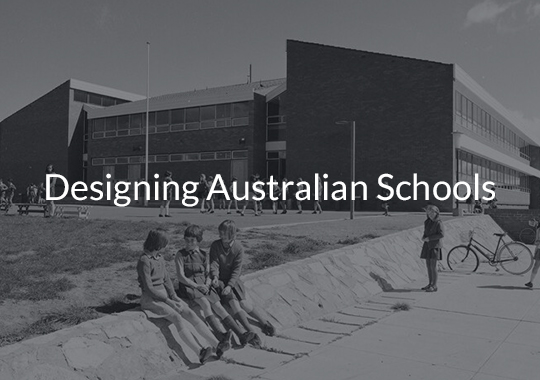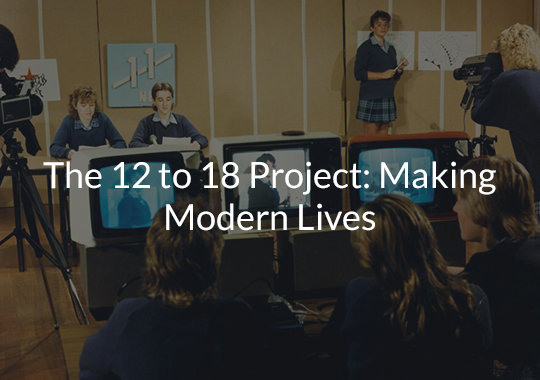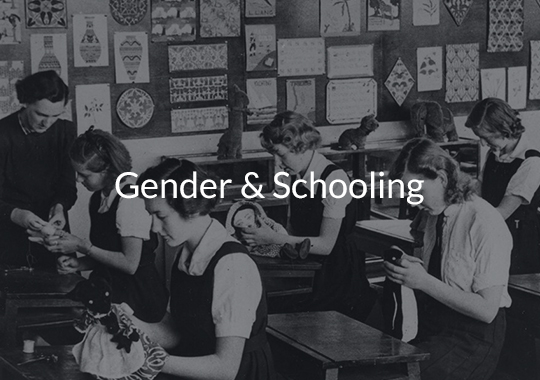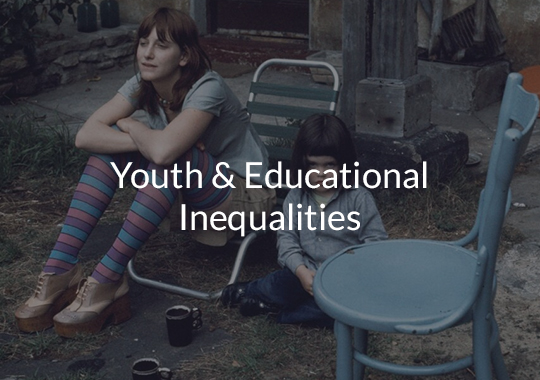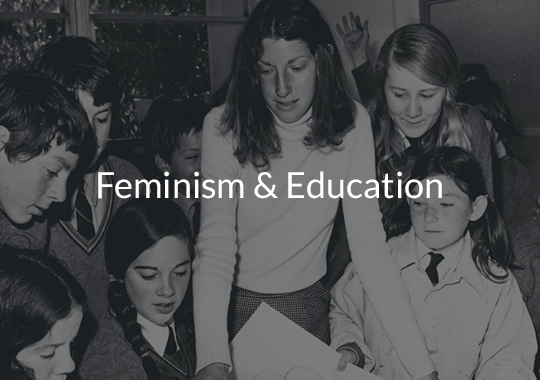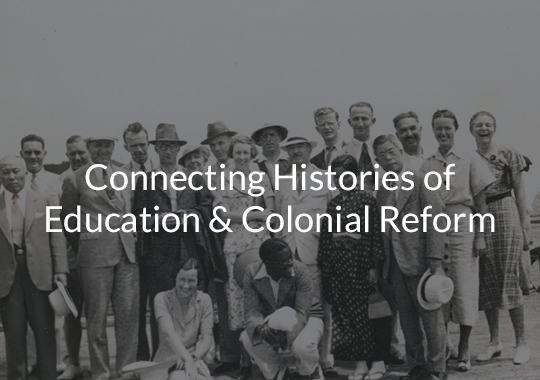This body of research comprises several projects that have addressed the social and historical dimensions of educational inequalities and processes of social differentiation and stigmatisation. Prominent themes include citizenship and its dividing practices, social-spatial exclusion, gendered aspects of educational disadvantage, and the power of relational and affective domains in securing and unsettling educational marginalisation.
Youth & Educational Inequalities

Two children climbing a tree, Collingwood, Victoria, 1970s. Photographer Rennie Ellis. State Library Victoria, H2012.140/1754
LEARNING FROM THE MARGINS
‘Young women negotiating from the margins of education and work: towards gender justice in educational and youth policies and programs’ was a cross-generational study of young women and their mothers who were located on multiple margins – socio-spatial, economic, educational. Funded by the ARC, the research team comprised Julie McLeod, Jane Kenway, Alison Mackinnon and Andrea Allard. The study sought to understand the experiences, attitudes and social and interpersonal resources of young women who had a tenuous attachment to schooling, or had left school early, and were living in socially disadvantaged communities on the edge of large Australian cities. It also sought to identify the range of factors impacting upon their decisions in relation to education and work, as well as the kind of strategies and educational and social supports that were of most benefit to them. The study explored generational and family dynamics and patterns of engagement with schooling and work, the spatial dimensions of gender and educational disadvantage, historical shifts in the experience and consequences of educational marginalisation, and key and potential points of change.
Associated publications
Moodie, Nicki, Ewen, Shaun, McLeod, Julie, and Platania-Phung, Chris (2018) ‘Indigenous graduate research students in Australia: a critical review of the research’, Higher Education Research and Development, vol. 37, no.4, 805–820. DOI: 10.1080/07294360.2018.1440536.
McLeod, Julie and Wright, Katie (2009) ‘The talking cure in everyday life: gender, generations and friendship’, Sociology, vol.43, no.1, February, 122–139.
McLeod, Julie (2007) ‘Generations of hope – mothers, daughters and everyday wishes for a better life’, in McLeod, Julie and Allard, Andrea C. (eds) Learning from the margins: young women, social exclusion and education. RoutledgeFalmer, London, 157–169.
McLeod, Julie and Allard, Andrea, eds (2007) Learning from the margins: young women, social exclusion and education. RoutledgeFalmer, London.
McLeod, Julie (2005) ‘Feminists re-reading Bourdieu: old debates and new questions about gender habitus and gender change’, Theory and Research in Education, vol.3, no.1, 11–30.
Kenway, Jane and McLeod, Julie (2004) ‘Bourdieu’s reflexive sociology and “spaces of points of view”: implications for the sociology of education and gender’, British Journal of the Sociology of Education, special issue ‘The theory of practice and the practice of theory: Pierre Bourdieu’s contribution to the sociology of education’, vol.25, no.4, 525–544.
McLeod, Julie, Kenway, Jane, Mackinnon, Alison and Allard, Andrea, Young women negotiating from the margins of education and work: towards gender justice in education and youth policies and programs. ARC Final Report, 2002–2004.
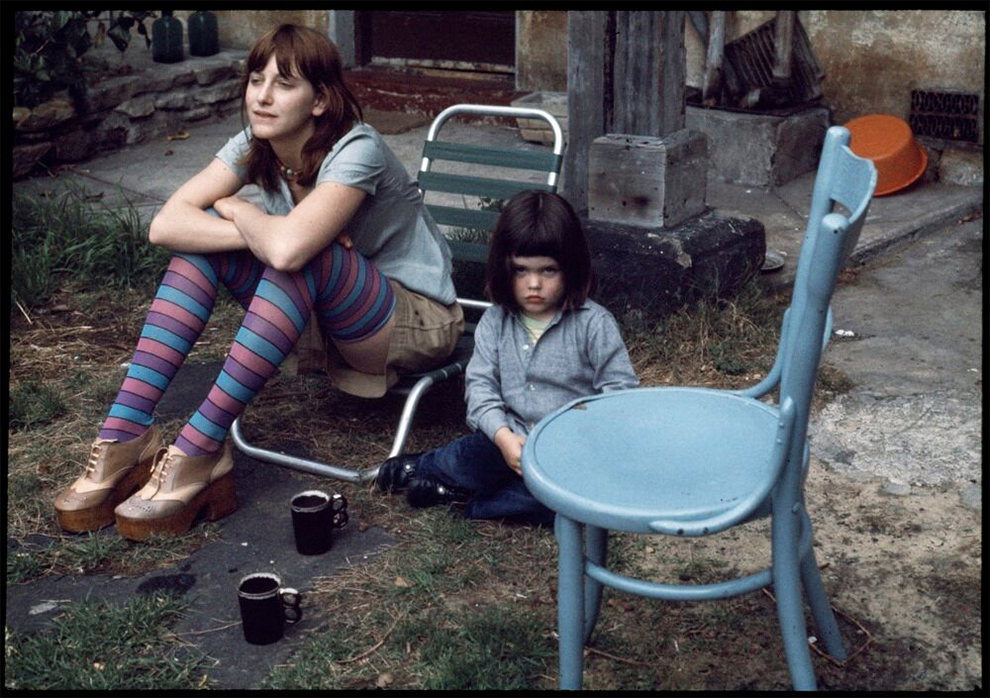
Homeless, 1968-1988. Photographer Rennie Ellis. State Library Victoria, H2012.140/323
DISENFRANCHISED YOUTH, CLASS CONFLICT & SOCIAL CHANGE
This collaborative project was a comparative cross-national ethnography that investigated the experiences, perceptions and negotiations of economically disadvantaged male and female youth (aged 14 to 18) living in inner-urban socially stigmatised communities and public housing estates. The overall project was led by Dr Jo-Anne Dillabough (University of British Columbia & University of Cambridge) with research sites in Canada, Australia and England; Julie managed the Australian site, based in Melbourne. Examining themes of social and educational exclusion, the project explored how radical social and economic changes – impacting at global/national/local levels – were perceived and negotiated by young people themselves. In particular, their experiences and perspectives were explored in relation to educational inequalities and the associated issues of choice, risk, exclusion, identity, and citizenship, analysed in reference to four contextual frameworks: spatial/local, historical, national and global.
Associated publications
Dillabough, Jo-Anne, McLeod, Julie, and Oliver, Caroline (2015) ‘Distant cities, travelling tales and segmented young lives: making and remaking youth exclusion across time and place’, International Journal of Inclusive Education, special issue ‘After exclusion, what?’ vol.19, no.6, 659–76.
McLeod, Julie (2012) ‘Vulnerability and the neo-liberal youth citizen: a view from Australia’, Comparative Education, vol.48, no.1, 11–26.
McLeod, Julie (2011) ‘Vulnerable youth: gender visibility and disappearing policy acts’, Redress: Journal of the Association of Women Educators, vol.20, no.2, August, 13–18.
McLeod, Julie (2009) ‘Youth studies, comparative inquiry and the local/global problematic’, Review of Education, Pedagogy and Cultural Studies, vol.31, no.4, 1–23.
McLeod, Julie and Dillabough, Jo-Anne (2007) ‘Social-spatial exclusion, gender and schooling: perspectives from Canada and Australia,’ Redress: Journal of the Association of Women Educators, April, vol.16, no.1, 3–11.

